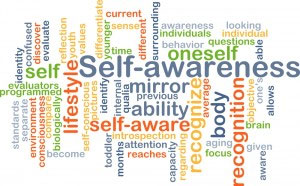Commit To Self Awareness
In my last post about the 15 Commitments to conscious leadership, I wrote of taking full responsibility for the circumstances of our lives. I met a prospective client the other day, and all he could do was complain about what was wrong with the world, how the economy was negatively affecting his business. He was sometimes the villain, sometimes the “wannabe” hero and most often the victim.
 It is easy to fall into that downward spiral of negativity. It is like an undertow, once you get pulled into one it is difficult to get out. We struggle against the pull, lose energy and perhaps drown. Often, the negativity affects others, and they pull us down as well. When we find ourselves drifting “below the line”, we must consciously shift to get back above the line.
It is easy to fall into that downward spiral of negativity. It is like an undertow, once you get pulled into one it is difficult to get out. We struggle against the pull, lose energy and perhaps drown. Often, the negativity affects others, and they pull us down as well. When we find ourselves drifting “below the line”, we must consciously shift to get back above the line.
This situation brings us to the second of the 15 Commitments. “I commit to growing in self-awareness. I commit to regarding every interaction as an opportunity to learn. I commit to curiosity as a path to rapid learning.” (The 15 Commits of Conscious Leadership). Richard Boyatzis and Annie McKee, in their book Resonant Leadership refer to this commitment as “mindfulness, being awake, aware and attentive of everything happening around them and within them.”
People who have not mastered this commitment are more concerned to being right to seeing that “this” situation as something that is happening to me. They commit to be defensive especially when they are certain that they am right. Politicians, celebrities, and business leaders often fall below the “line” when it comes to this commitment, as are parents, teachers, and policemen. It happens to all of us. We all drift below the line. Conscious “shifting” to get back above the line is the key to building this strength.
I’ve helped hundreds of people discover their values, motivators, strengths, behaviors and challenges, but only a few take advantage of the knowledge. It is far easier to slip into their warm habits of fecklessness and lethargy and not change. In other words, they miss the opportunity to raise their EQ (emotional intelligence).
Harvard Business Review’s (HBR) 1997 article on EQ by psychologist and author Daniel Goleman ranks as their most requested article ever. In 2003 HBR re-examined EQ data and reached this conclusion:
“In hard times, the soft stuff often goes away. But emotional intelligence, it turns out, isn’t so soft. If emotional obliviousness jeopardizes your ability to perform, fend off aggressors, or be compassionate in a crisis, no amount of attention to the bottom line will protect your career. Emotional intelligence isn’t a luxury you can dispense with in touch times. It’s a basic tool that deployed with finesses, is the key to professional success.”


